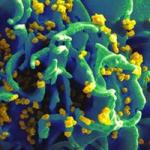
Research Topics
Viruses have caused the majority of outbreaks and pandemics over the last century. Rapid development of small animal models and understanding of the mechanisms that promote long-term protection to viral infections are critical for the development of vaccines and therapeutic treatments.
Immunity to arthritogenic alphaviruses
Alphaviruses are emerging and re-emerging positive-sense RNA viruses that have caused explosive outbreaks worldwide. The arthritogenic alphaviruses, including chikungunya virus, Mayaro virus, and Ross River virus, cause fever, rash, myalgia, and severe polyarthritis and polyarthralgia. A subset of infected individuals will develop persistent joint pain that can last from months to years, depending on the virus. Following the bite of a mosquito, viruses replicate at the site of infection and disseminate to the joint-associated and musculoskeletal tissues. Viral replication, production of proinflammatory cytokines and chemokines, and recruitment of immune cells to these tissues drives localized damage resulting in arthritic disease. Mouse models recapitulate several aspects of arthritogenic alphavirus disease, and we use these models to elucidate mechanism of protection.
While the arthritogenic alphaviruses are genetically distinct, cross protection between the related alphaviruses has been observed. We work to identify correlates of heterologous immunity to inform novel approaches towards the design of broadly protective vaccines and therapeutics.
Antibody effector functions for protection against viral infections
Virus-specific antibodies use multiple mechanisms to limit viral infection. Antibodies can bind and neutralize free virus thus preventing infection. Additionally, antibodies can clear infected cells or immune complex through interaction of the antibody Fc region with host proteins, such as Fc receptors. Antibody Fc interactions can also modulate the innate and adaptive immune response. Since the structural proteins of alphaviruses stud the surface of infected cells, antibodies can target these infected cells for clearance. Indeed, Fc-Fc gamma receptor interactions have been shown to be required for optimal monoclonal antibody therapy during alphavirus infections. This makes alphaviruses a useful model to interrogate antibody effector functions, which can then be applied to other viral systems. In these studies, we work to determine immune factors that promote a functional antibody response and the impact on cellular immunity that will ultimately lead to enhanced protection.
Biography
Dr. Fox received her Ph.D. in infectious diseases from the University of Georgia in 2013 working on host immunity to influenza virus. She completed her postdoctoral training in arbovirus immunity at Washington University in St. Louis School of Medicine in the Division of Infectious Diseases in 2020. Dr. Fox joined the Laboratory of Viral Diseases in 2020.
Selected Publications
- Dunagan MM, Dábilla N, McNinch C, Brenchley JM, Dolan PT, Fox JM. Interaction of the endogenous antibody response with activating FcγRs enhance control of Mayaro virus through monocytes. PLoS Pathog. 2025;21(2):e1012944.
- Keeler SP, Fox JM. Requirement of Fc-Fc Gamma Receptor Interaction for Antibody-Based Protection against Emerging Virus Infections. Viruses. 2021;13(6).
- Fox JM, Roy V, Gunn BM, Bolton GR, Fremont DH, Alter G, Diamond MS, Boesch AW. Enhancing the therapeutic activity of hyperimmune IgG against chikungunya virus using FcγRIIIa affinity chromatography. Front Immunol. 2023;14:1153108.
- Sutton MS, Pletnev S, Callahan V, Ko S, Tsybovsky Y, Bylund T, Casner RG, Cerutti G, Gardner CL, Guirguis V, Verardi R, Zhang B, Ambrozak D, Beddall M, Lei H, Yang ES, Liu T, Henry AR, Rawi R, Schön A, Schramm CA, Shen CH, Shi W, Stephens T, Yang Y, Florez MB, Ledgerwood JE, Burke CW, Shapiro L, Fox JM, Kwong PD, Roederer M. Vaccine elicitation and structural basis for antibody protection against alphaviruses. Cell. 2023;186(12):2672-2689.e25.
- Kafai NM, Diamond MS, Fox JM. Distinct Cellular Tropism and Immune Responses to Alphavirus Infection. Annu Rev Immunol. 2022;40:615-649.
Related Scientific Focus Areas



Microbiology and Infectious Diseases
View additional Principal Investigators in Microbiology and Infectious Diseases
This page was last updated on Friday, July 25, 2025